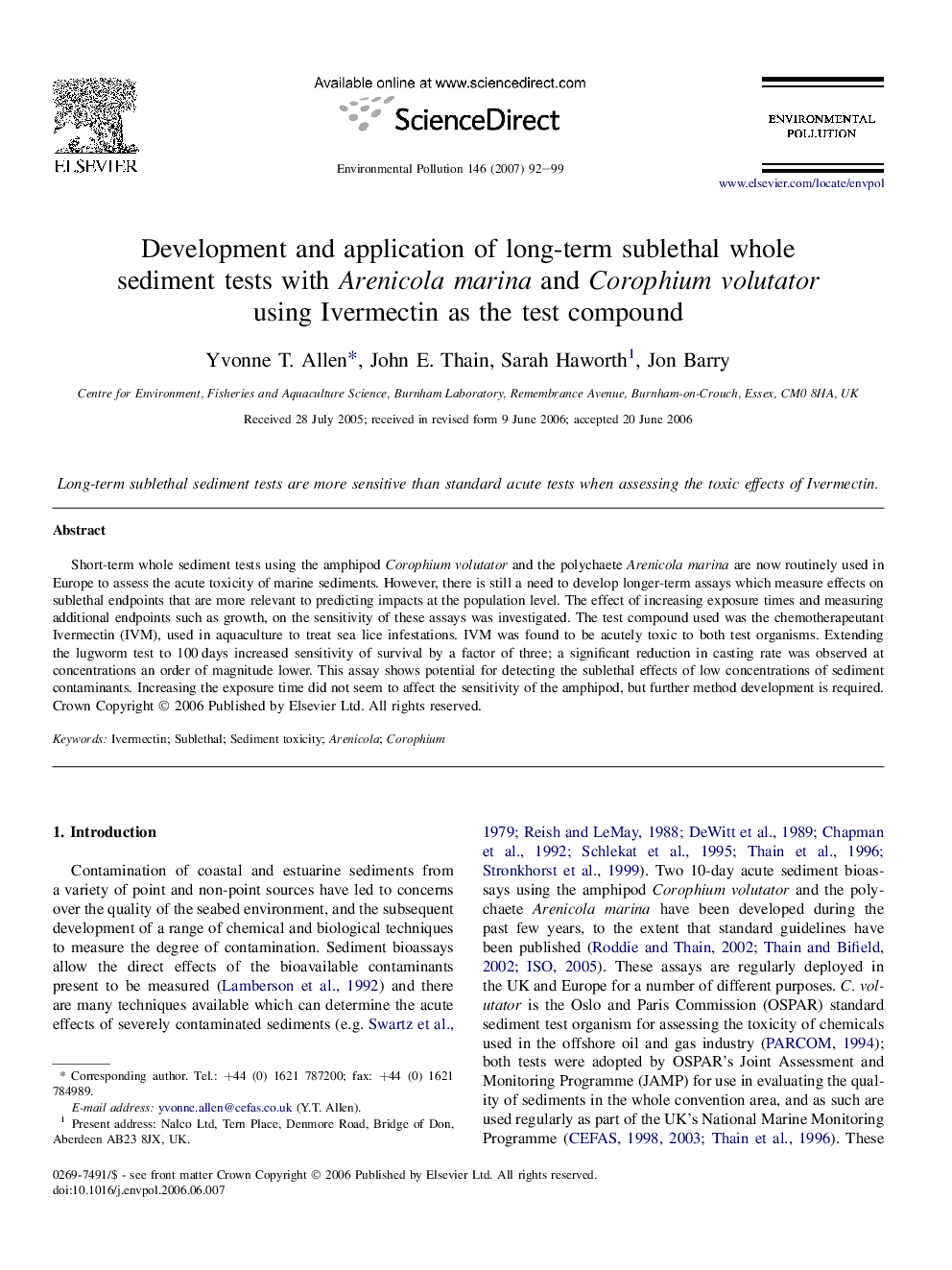| Article ID | Journal | Published Year | Pages | File Type |
|---|---|---|---|---|
| 4427373 | Environmental Pollution | 2007 | 8 Pages |
Short-term whole sediment tests using the amphipod Corophium volutator and the polychaete Arenicola marina are now routinely used in Europe to assess the acute toxicity of marine sediments. However, there is still a need to develop longer-term assays which measure effects on sublethal endpoints that are more relevant to predicting impacts at the population level. The effect of increasing exposure times and measuring additional endpoints such as growth, on the sensitivity of these assays was investigated. The test compound used was the chemotherapeutant Ivermectin (IVM), used in aquaculture to treat sea lice infestations. IVM was found to be acutely toxic to both test organisms. Extending the lugworm test to 100 days increased sensitivity of survival by a factor of three; a significant reduction in casting rate was observed at concentrations an order of magnitude lower. This assay shows potential for detecting the sublethal effects of low concentrations of sediment contaminants. Increasing the exposure time did not seem to affect the sensitivity of the amphipod, but further method development is required.
